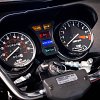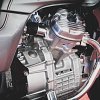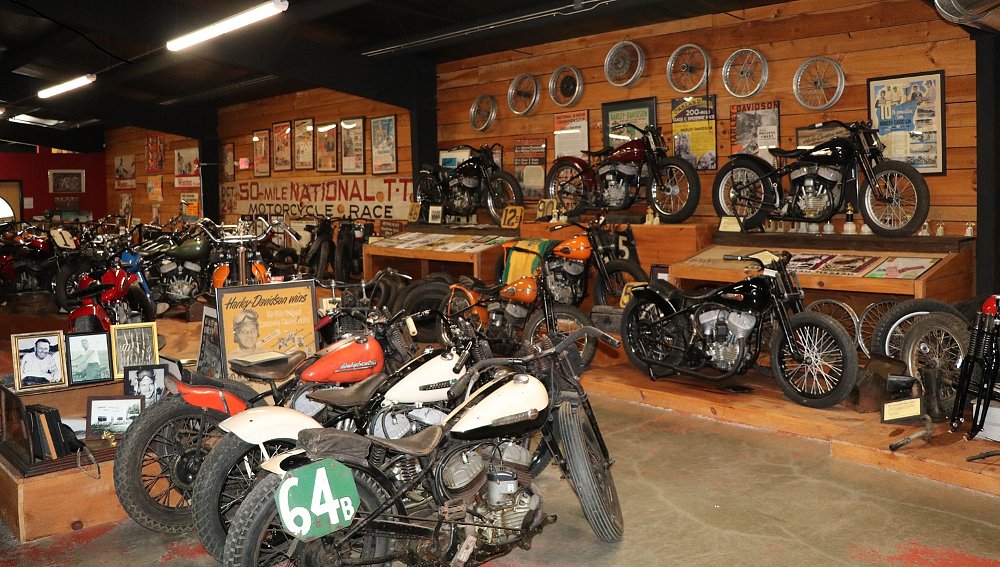Lurking in the shadow of every motorcycle collection is pain.
I'm not talking about the thin wallet or the scraped knuckles. I'm talking about honest-to-God pain that draws tears and sometimes smarts forever. Common Tread has reported on quite a few collections (the Nettesheim BMWs, the Kanneneberg collection, the Wheels Through Time Museum created by Dale Walksler, the Talbott Museum, etc.), but we've never really addressed the somber side of the story. What happens to a collection when the collector is gone? These objects that bring us such joy can also be a source of incredible distress for those we leave behind.
The topic came to mind when Dennis Martin, proprietor of Martin Moto and a longtime friend of RevZilla, invited me to come take a look at more than three dozen motorcycles he had acquired from the collection of the late Mike Casale. While some of the motorcycles are really interesting in their own right, it got me thinking about the story behind those machines.
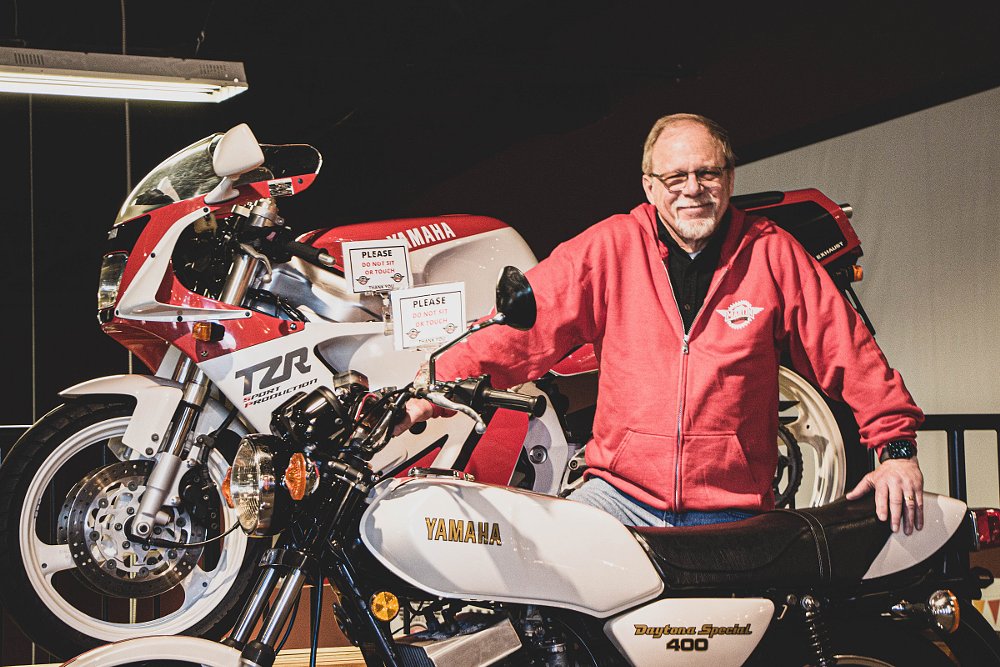
A collection portends the beginning of a problem
Motorcycle collections begin innocuously, but in reality, what the owner may consider an asset can quickly become a liability. Mike, for instance, was a generous collector who dedicated time to acquiring, preserving, and sharing motorcycles in his possession — but liquidating the collection, especially in light of his unexpected passing, created headaches for his wife, who survived him, and the mechanic who cared for his vehicles.
Distribution of the objects owned by someone who has died is never easy, but motorcycles present their own set of unique challenges. Many of the people close to us may not know how to operate our machines or transport them. Their value is often unclear and the channels by which they should be sold are murky. These problems layer on top of other tasks that take precedence — obtaining a death certificate, notifying friends and family, making funeral arrangements, dealing with pets, and navigating the sea of paperwork surrounding estate settlement.
A motorcyclist with one machine usually presents little problem. That bike is almost always late-model, common, and in running condition; such bikes are easy to sell. But when that motorcycle becomes five or 10 or 50 of various values and states of condition, those "assets" begin to require an awful lot of effort to disburse. Unless a collector obtains, enjoys, and then liquidates his wares before death, an uncommonly large number of motorcycles often represents a potential problem for the living.
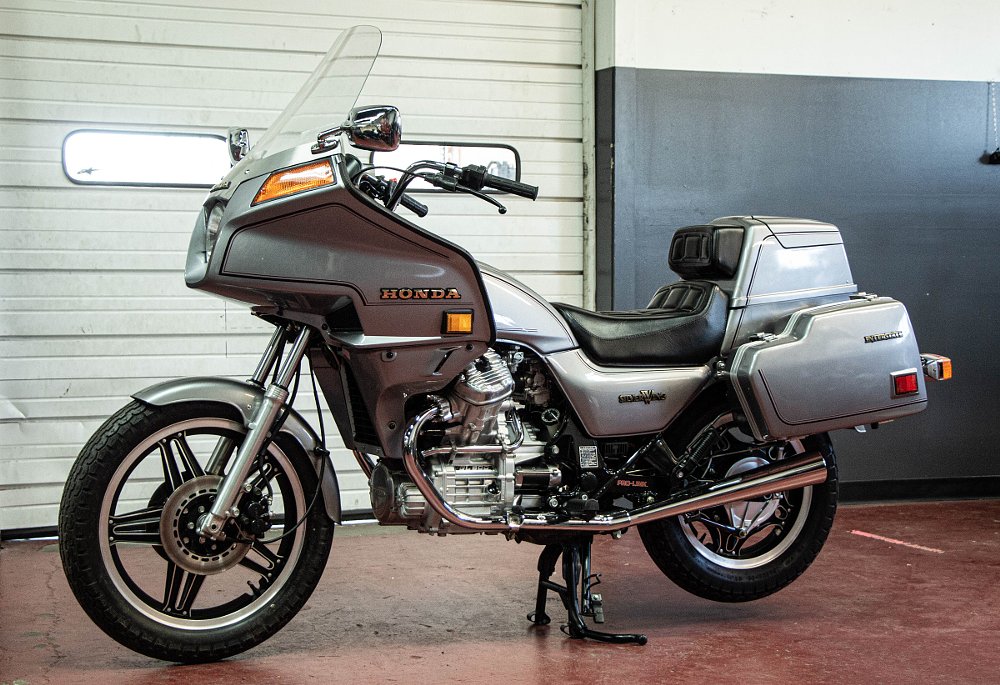
A conundrum is time or money — on both ends
Mike's collection totaled 61 motorcycles. Dennis purchased 37 of those, but he did not pick and choose. Rather, he mostly just accepted things based on country of origin. Now in this case, he was obviously writing a large check, but he was also committing to a large investment of time. Most of those 37 motorcycles are not running, so the bikes all need to be inspected, diagnosed, and then repaired. Even for your average needs-a-battery and clean-the-tank-and-rebuild-the-carb bikes, that's a ton of work. Heck, take a moment to think about the logistics of simply transporting 37 motorcycles to their new home.
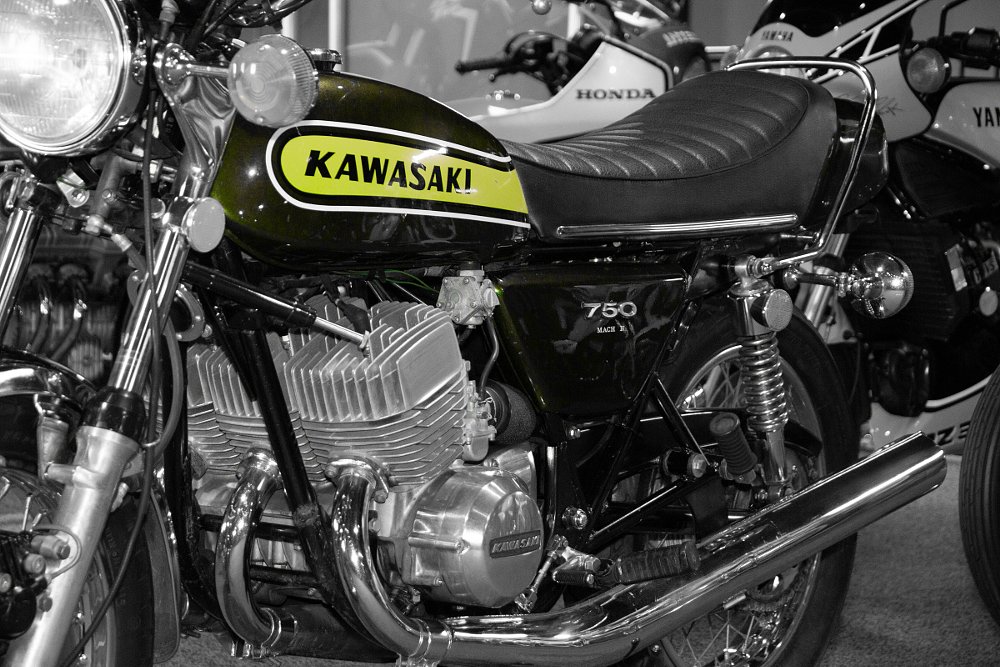
Survivors have to find titles and match them to bikes, but they're also saddled with finding other documentation, parts and accessories that go with certain motorcycles. A good example was a Yamaha Seca Turbo that was in this package of motorcycles. A few days after the bike showed up, Ralph, the mechanic who had cared for Mike's motorcycles, called Dennis to let him know he had the fuel tank for the motorcycle. (It resides under some bodywork.) Thank goodness someone knew where it was and to what it belonged, or that turbo might have been quiet for a pretty long time.
And how about the assessment of what was there? Unless one is an expert, more research is almost always needed. One of Casale's Japanese bikes was a 1980s-era, 673 cc, inline four making well below 100 horsepower, something that may not register as remotely interesting. But the bike in question is a 1983 Suzuki XN85. (The 85 references the power output.) I knew turbo bikes all have a bit of value, but this entry in the Turbo Wars by Suzuki is so rare it wasn't even on my radar. Imported to the United States for only one year, this motorcycle is one of about 300 ever offered for sale here. If it were sold individually, I would expect at minimum a five-digit sale price.
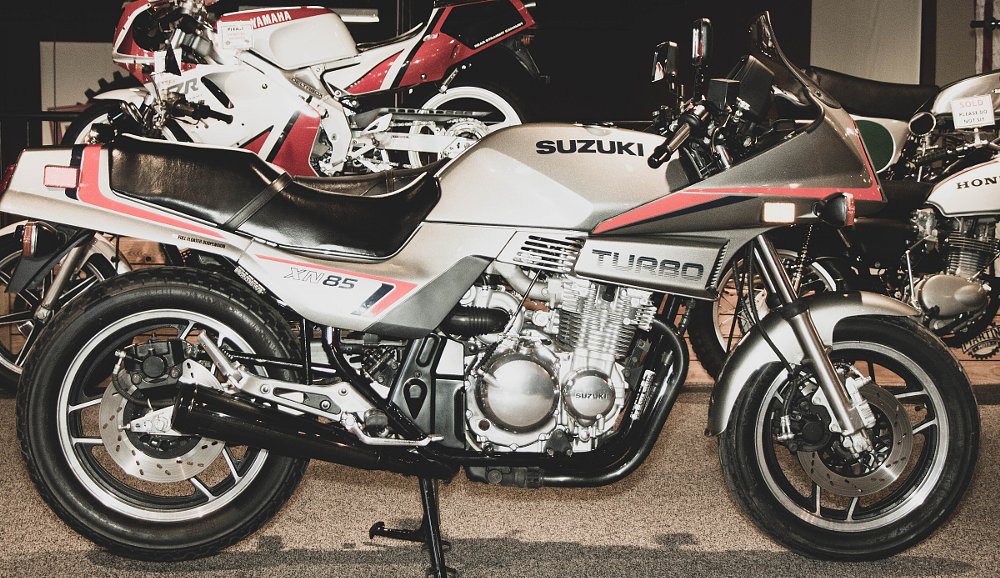
The XN is certainly a rare, esoteric bike, but good information is readily available. But how about the truly rare machines? Do you want to start researching which parts might be incorrect on the 1957 Rumi Junior Sport that was in the collection? How much time do you have, and how much is that time worth?
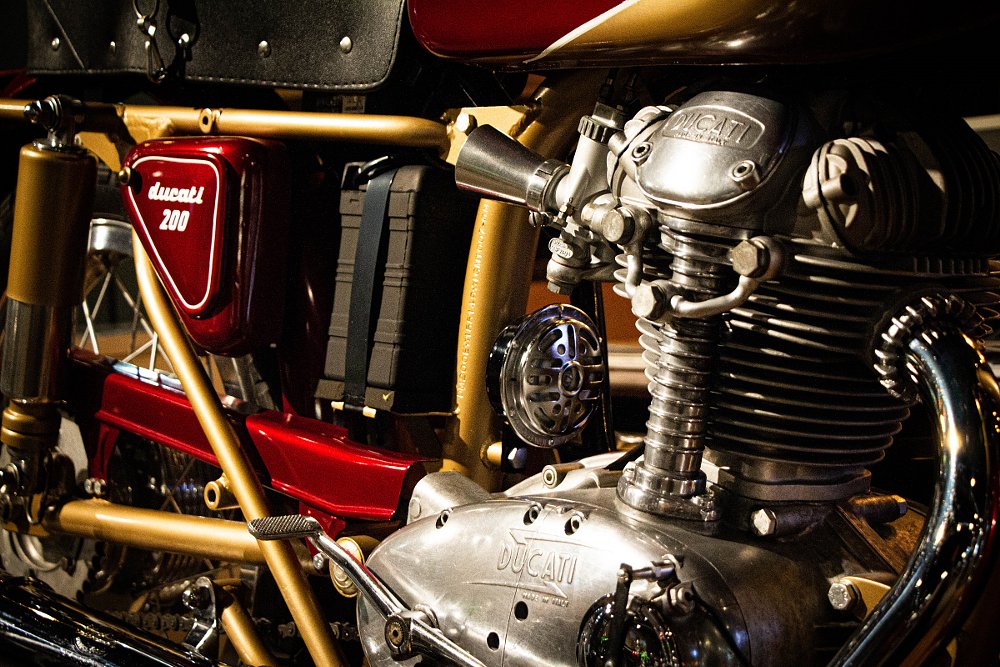
Motorcycles are usually the bulk of a collection, but ancillary items can be just as numerous and often even more difficult to sell. Memorabilia, tools, and parts are often present, and they often appeal to a different crowd. Parts, in particular, require a lot of knowledge about fitment and condition, which of course affect value, and those often sell in different venues. I'm pretty sure a box of Lucas K2F/K2FC magnetos has value but probably doesn't bring very much at Mecum or Sotheby's auctions. Identifying parts and knowing how to sell them is a lot to ask of a loved one who may not even know how to put gasoline in one of these contraptions.
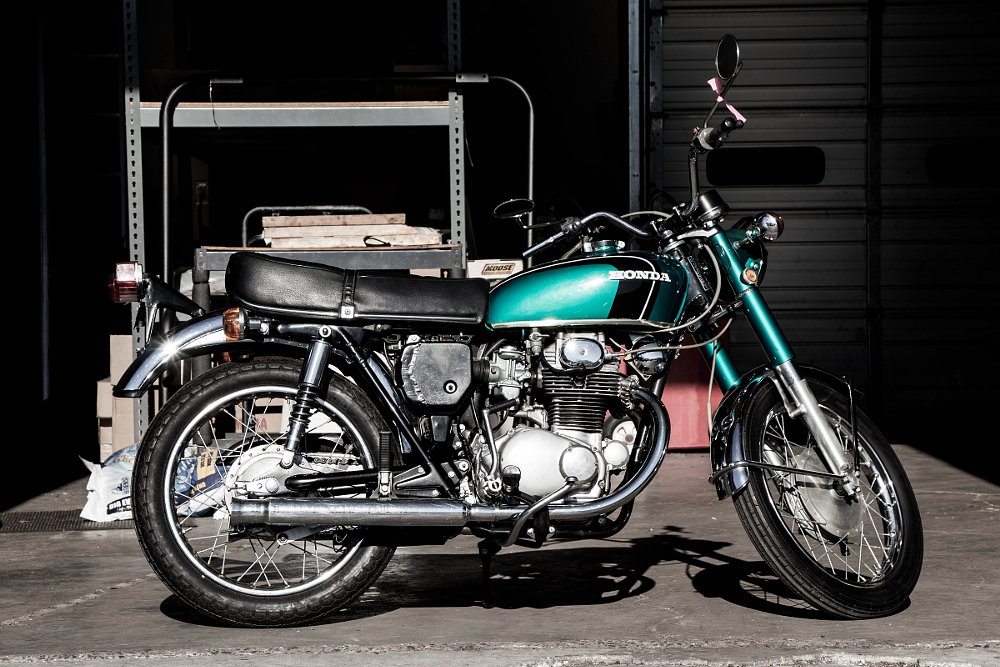
It's not uncommon for an overwhelmed loved one to let an estate auctioneer handle the task of disposing of a lifetime collection. It's tempting to deal with one entity who promises to handle all the work and heavy lifting of liquidation. The unfortunate part of this is that in the interest of speed, the obviously valuable items are often cherry-picked and the rest is sold for pennies on the dollar or simply trashed in the name of expediency and efficiency.
The dispersal of Mr. Casale's motorcycles has been handled well with Ralph's oversight, but even he has gotten overwhelmed at times with the sheer volume of parts and motorcycles. And how many of us have a dedicated mechanic to step in for such tasks?
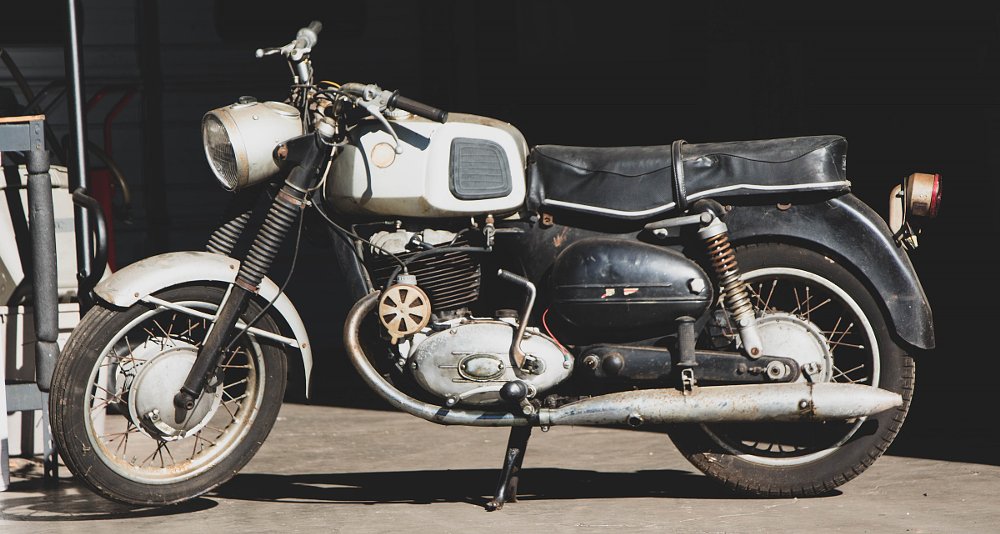
Conclusion: We all come to one
A collection of motorcycles is as much a liability as it is an asset, especially one without strict instruction, guidance, oversight, and information pertaining to next steps beyond the life of the present custodian. Mike Casale lives on through his motorcycles, and for as painful and difficult as the process of getting them into the hands of new guardians is, it's going probably about as smoothly as it can.
If you own something (or several somethings) special, perhaps this should serve as a reminder to tag that part with fitment info, to express your desires for a beloved machine to a loved one, or to get a new generation into the garage with you to know what to be done when the inevitable comes.

 Membership
Membership




